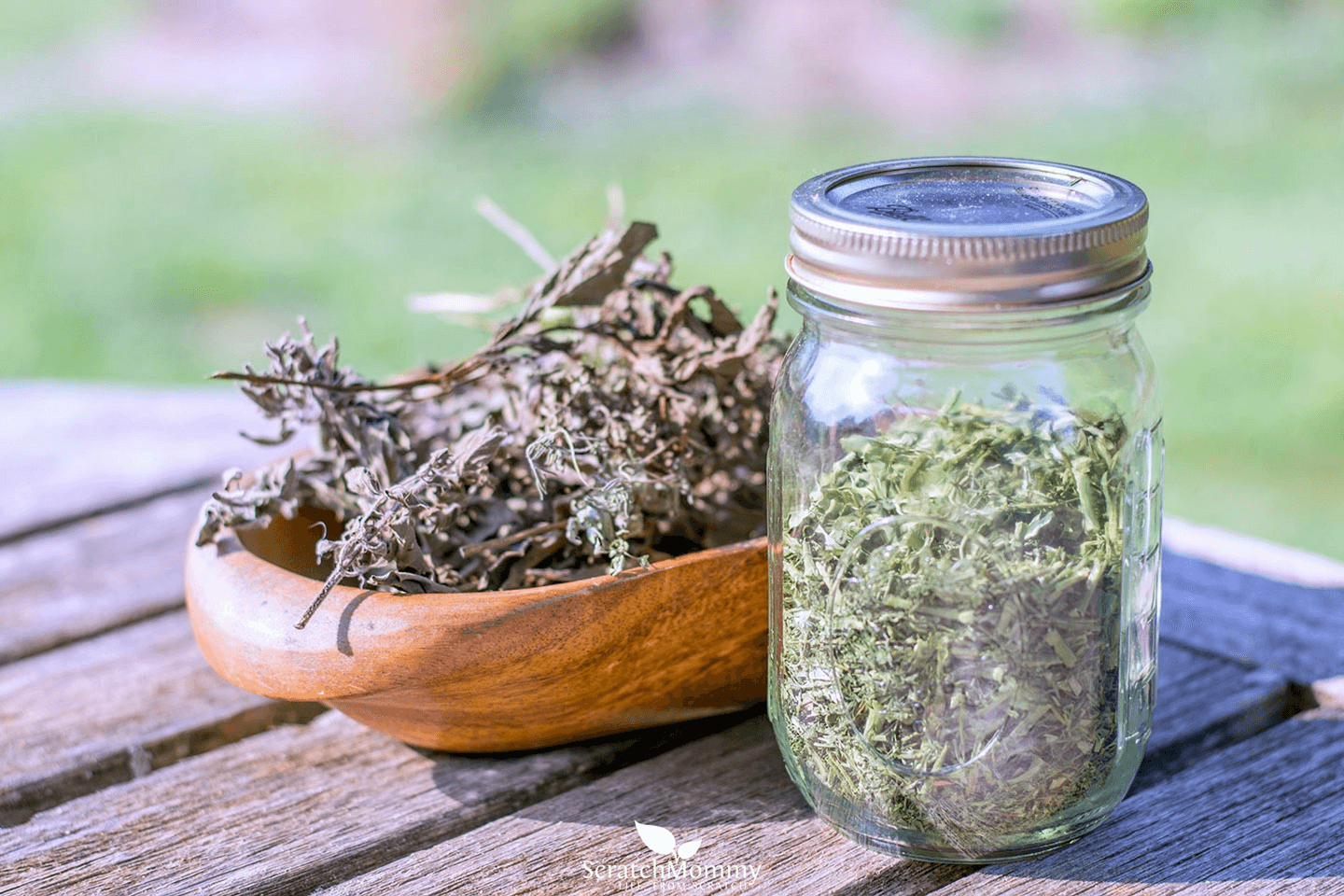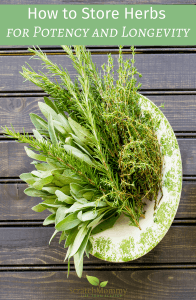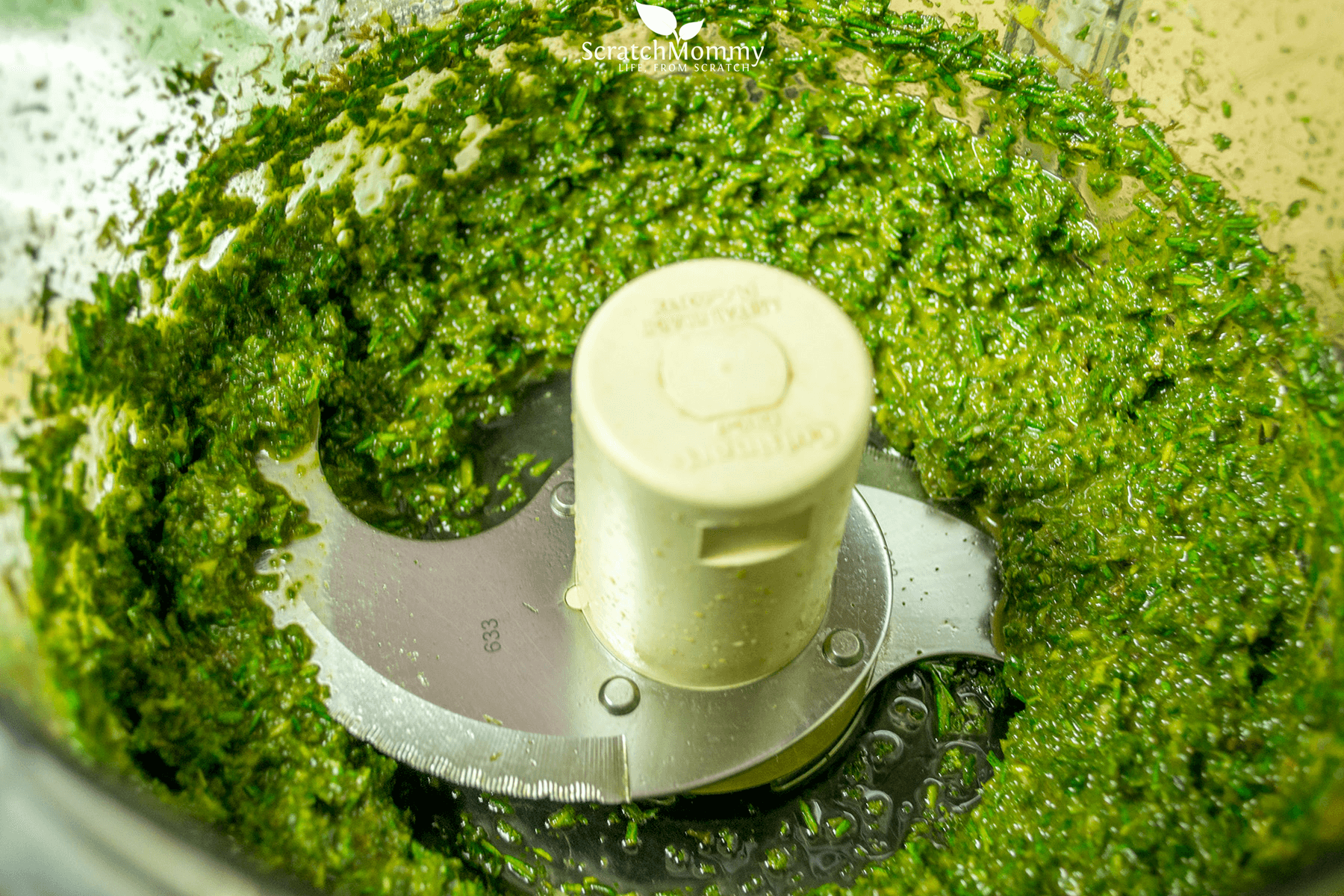Herbs are some of the easiest things to preserve. Seriously! Listen…if you want to get the most flavor out of your herbs, both from your garden OR if you bought them, there are a few simple steps you need to follow for maximum potency and longevity. Follow the tips below and always have well-preserved, fresh herbs on hand when you are working in the kitchen! Let’s talk about how to store herbs for potency and longevity!
Shelf Life
Dried herbs have a shelf life of about a year. They do not technically “go bad,” but they do lose their potency over time. So, the first step to getting your spice rack in shape is to go through and get rid of those herbs you’ve had for, ahem, more than a year. I’m not going to lie, I probably have cloves in my pantry that are pushing five or more years.
Forms of Herbs
You can get herbs and spices fresh, dried, whole, and ground. Fresh herbs from the garden or purchased from a supermarket will have the most potent aroma, but will lose their potency quickly once picked. This is because fresh herbs have a high water content, while dried and ground herbs have a concentrated flavor due to lower water content. This is why it usually takes a lot more fresh herbs to get the same flavor potency of a dried or ground herb.
Drying
Drying herbs is the easiest way to preserve them. It doesn’t take fancy equipment, just a little time. Harvest your herbs in the morning after the dew dries. Also, for best flavor, try to harvest your herbs before the flower develops on the herbs (read this post re: how and why to prune your herbs). Give your herbs a good wash. Next, dry them thoroughly (a salad spinner works great). You’ll want to remove all of the water from the leaves before you hang them to dry. Water left on the leaves will result in an higher chance of mold.
Tie your herbs in small bundles with a rubber hand or twine. Hang the herbs in a cool, dry area out of direct sunlight, but one that gets plenty of air circulation. If you live in a humid area (like I do) drying time can take longer, but they will typically dry in a week. Check frequently for mold and progress.
If you have a dehydrator, you can dry your herbs in a hour or less. I typically switch to this method due to the high humidity of my area. For this method, I wash and dry as I would for hang drying, then strip the individual leaves of the larger herbs like basil, mint, and sage, and then spread them over the dehydrator racks in a single layer. For smaller leaves, like thyme and rosemary, I dry the sprig and then strip them off once dried.
You can also dry them on a chicken wire rack or screen. Spread individual sprigs of herbs across your rack. Turn the herbs a couple of times a day to ensure even drying. The herbs should dry in two to three days.
You can also dry your herbs via microwave or oven. However, I think this process is a bit too tedious and I don’t personally recommend it.
Storing
Air tight containers are a must for keeping herbs fresh. Ideally, you should use a glass container with some sort of rubber or silicone gasket to keep air out. Crumble the dry herbs into the glass containers and store in a cool, dry place out of direct light. If you have a lot of herbs to store, consider getting a vacuum sealer device to remove air from either the bag or glass jar for extended storage.
Herb Paste
One of the ways I love to store herbs is to make a paste. It’s similar to making a pesto and it’s an easy way to blend additional flavors together, like garlic and onion with olive oil, for a custom seasoning blend ready to go when you need it. Herb pastes can be stored in the freezer and work well for herbs like basil and chives, which lose their flavor quickly when dried. I have a full step by step tutorial on how making herb paste on my gardening blog, The Prudent Garden.
Persevering your own herbs is an awesome way to extend seasonal flavors into the winter. It’s also way more cost effective and environmentally friendly. If you dried way more herbs that you will use, great! Pack them up in little mason jars and gift them to friends and family—they will love receiving such a personal, handcrafted, DIY, thoughtful gift!



